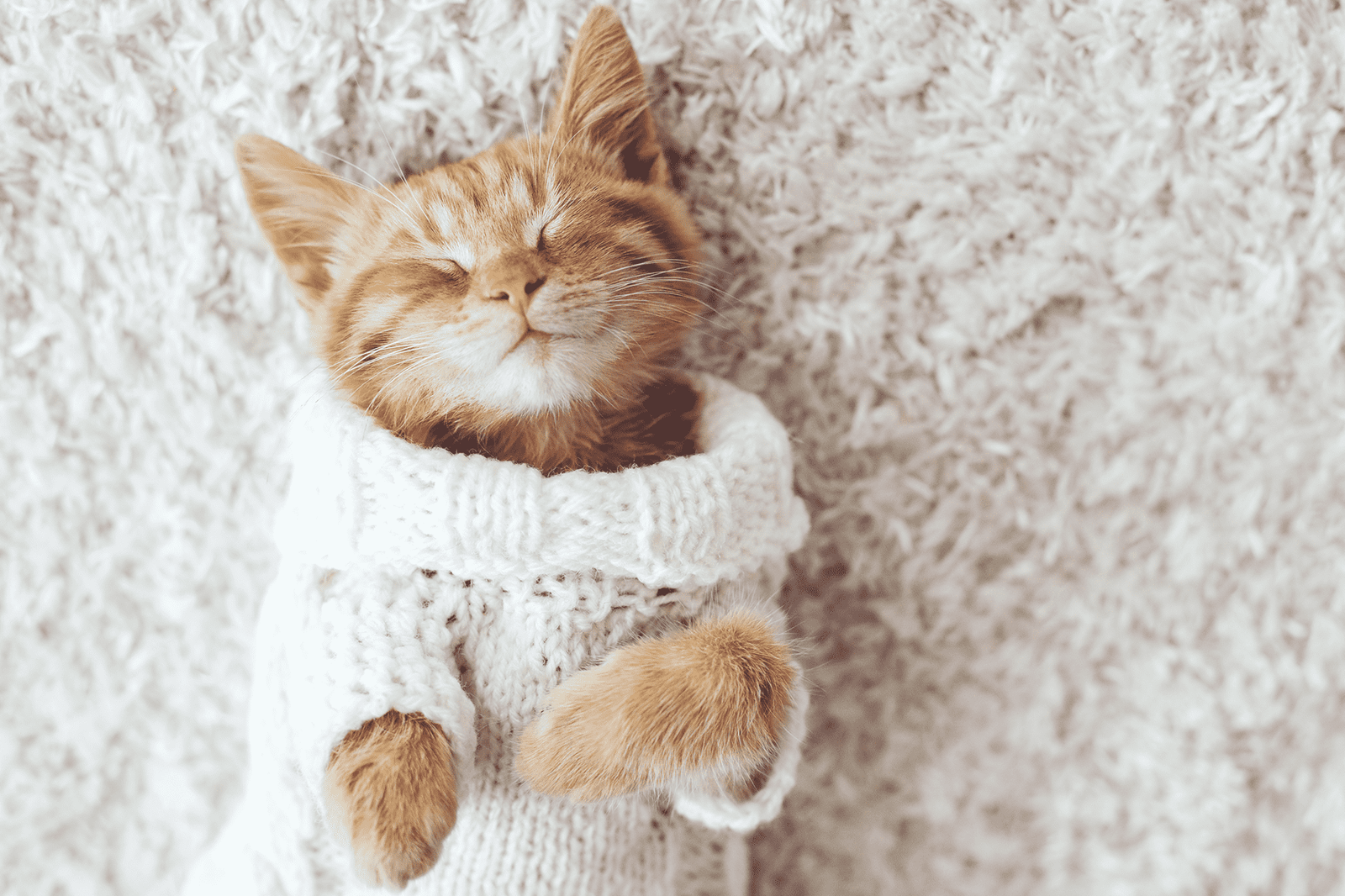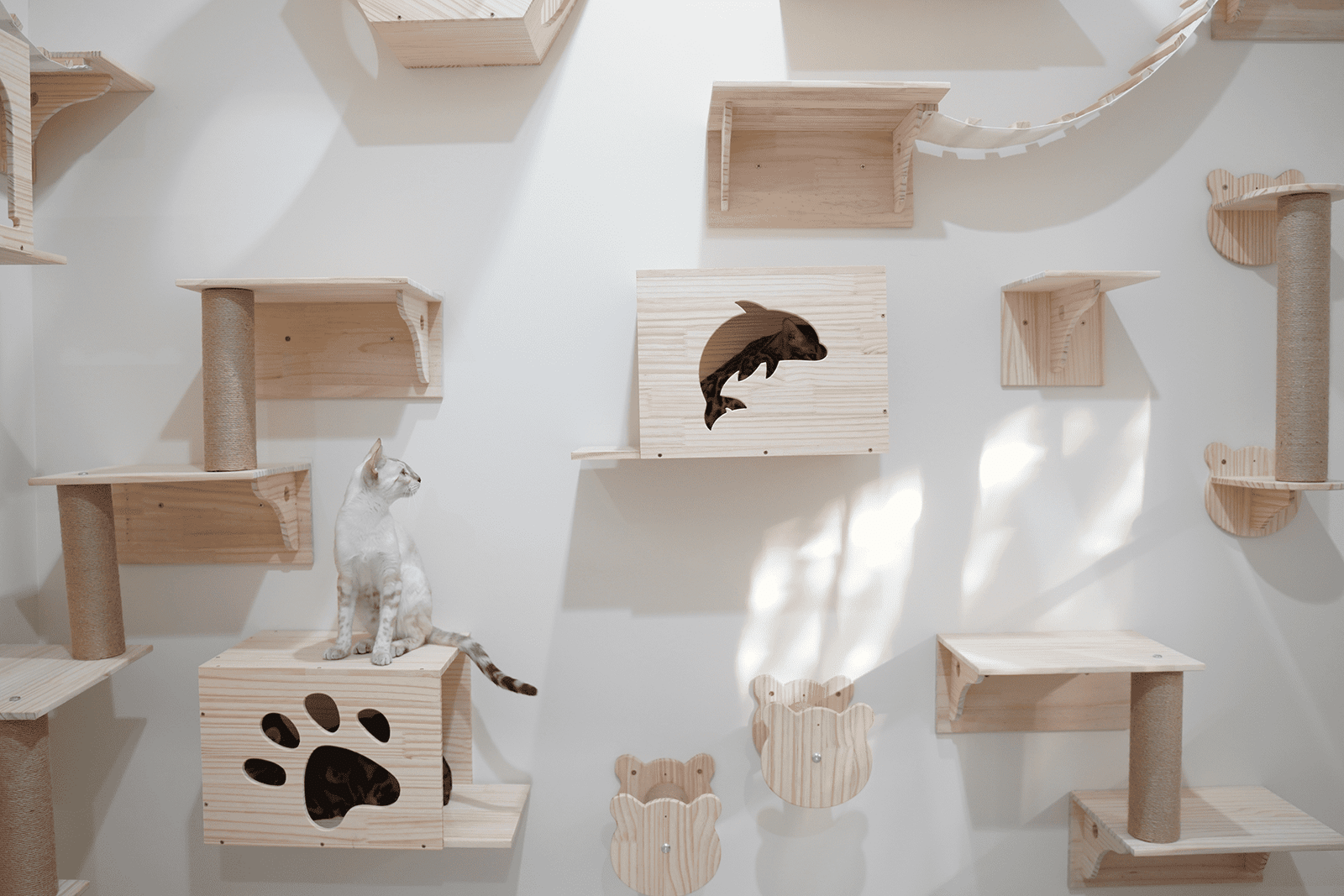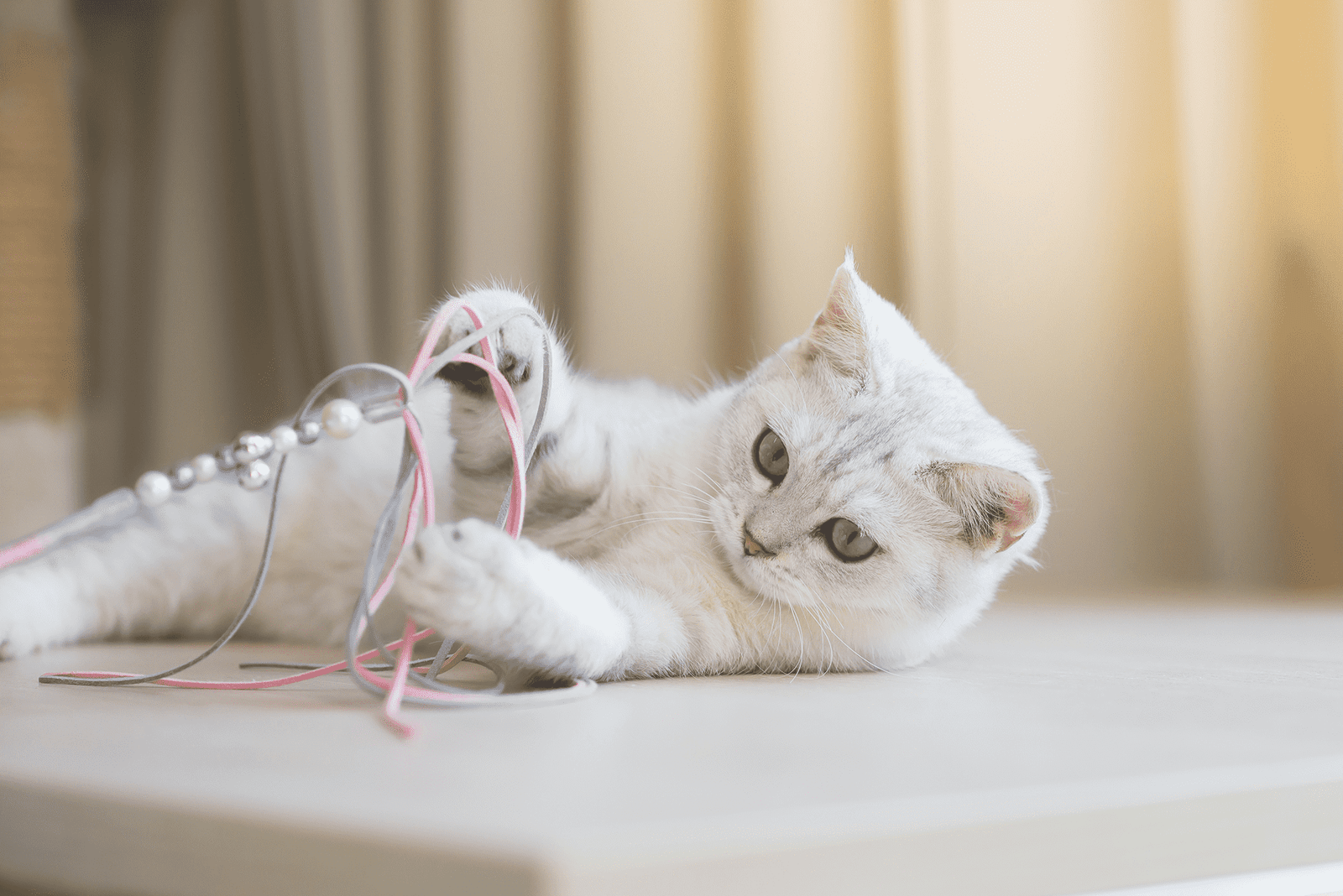Cats are natural hunters with an instinctual need to play. While they certainly spend time napping and grooming, playtime is an essential part of a cat’s daily routine.
Interactive play sessions provide mental stimulation, physical activity, stress relief, and social bonding for our feline friends.
As caretakers, it’s our responsibility to provide appropriate outlets for a cat’s natural behaviors. Setting aside dedicated playtime each day is just as important as scheduled feedings and helps keep cats happy and healthy.
In the wild, cats spend much of their time hunting prey and practicing survival skills. Domestic cats retain these natural instincts, even though they don’t have to hunt for food. Play allows them to engage in “mock predation” by pouncing, chasing, attacking, and capturing toys. This gives an outlet for their prey drive in a safe, controlled way. It also helps prevent boredom and destructive behaviors like inappropriate scratching.
Play strengthens the bond between cats and their owners. It provides mental stimulation to keep their minds sharp and active. Additionally, daily exercise from playing helps prevent obesity and joint issues. Kittens learn important developmental skills through play, and it keeps senior cats engaged. Ultimately, setting aside playtime is beneficial for both feline and human – fun for the cat, and quality time with your pet for you. This article will explore why you should play with your cat every day for a happy, healthy kitty.
Physical Health Benefits
Playing with your cat every day provides important health benefits, especially when it comes to exercise. Indoor cats can easily become overweight and obese without enough activity, leading to problems like diabetes and arthritis. But when you play with your cat using toys like feather wands and laser pointers, you encourage them to run around and get their heart rate up. This type of aerobic exercise helps them burn calories and prevents obesity.
Playing also allows cats to simulate natural hunting behaviors like stalking, pouncing, and chasing. In the wild, cats would spend much of their day hunting prey and engaging in these behaviors. Domestic cats retain these strong instincts, so play gives them an outlet to behave as nature intended. Your cat will be healthier and happier when they can act on their primal hunting urges, rather than bottling them up from lack of stimulation. So make sure to play with toy mice, balls, and other objects they can “kill.” Both you and your cat will enjoy this daily playtime ritual.
Mental Stimulation
Playing with your cat is mentally stimulating for them. When cats play, they get to engage their natural hunting instincts by pouncing on toys and chasing things around. This gives their brains some exercise as they figure out how to “catch” their prey.
Interacting with toys also provides mental stimulation through problem solving skills. Cats have to think about how to get the toy to move or make a noise. Batting a ball around the room or figuring out how to get treats out of a puzzle toy gives their brain a workout.
Mentally stimulating play is important to keep cats sharp and engaged. It exercises their brains by honing natural instincts and behaviors. A mentally engaged cat is a happy cat. So make sure to include interactive play in your cat’s daily routine to keep their mind active and alert.
Prevents Boredom
Cats naturally have an instinct to hunt, forage, and be active. When they are understimulated, cats can become bored and restless. This may lead to undesirable behaviors like inappropriate scratching, aggression, vocalization, and even urinary issues.
Playing with your cat every day prevents boredom by providing enrichment and keeping your cat engaged. Interactive play satisfies their prey drive and allows them to express natural behaviors. Whether it’s chasing toys, pouncing on feather wands, or solving treat puzzles, play gives cats an outlet for their energy.
An enriched environment also makes cats less likely to act out. When properly stimulated, cats will be more satisfied and content. Daily play sessions give them something to look forward to as well. Prevent destructive behaviors and bond with your cat by making playtime a habit.
Play Teaches Social Skills and Strengthens Bonds
Playing with your cat is an important opportunity for them to develop social skills with other pets and humans. Through play, cats learn how to interact with others using their natural behaviors like pouncing, chasing, and wrestling. As kittens, they learn from their mothers and littermates how hard to bite or scratch while playing. Interacting this way allows them to build trust and bond with their owners and other household pets.
Playtime gives your cat a positive outlet for their natural hunting behaviors. With toys and play, they can pounce and chase acceptable “prey” items rather than directing hunting behaviors toward people or inappropriate targets. Cats also learn to retract their claws and control their bite strength when playing with human hands or other pets. This teaches them to play gently and prevents overly rough play. Regular play strengthens the bond between pets and owners through positive shared experiences and physical contact. Dedicated playtime is a chance for your cat to safely interact with children, other pets, and guests in your home. Overall, play allows cats to develop vital social skills and form close relationships.
Emotional Wellbeing
Playing with cats has been shown to provide significant emotional benefits for both cats and their owners.
For cats, playtime allows them to act out their natural hunting behaviors in a safe environment. This allows cats to express their instincts and release pent-up energy, which can reduce stress, anxiety, and frustration.
When a cat pounces, stalks, chases, and eventually “catches” a toy, it releases feel-good hormones like dopamine and endogenous opioids. This gives the cat a mood boost and makes it feel relaxed, content, and emotionally balanced. Research has found that when cats don’t get adequate playtime to satisfy their predatory needs, they are more likely to exhibit destructive behaviors like inappropriate scratching.
Playtime also strengthens the bond between cats and their owners. By making time to play with a cat every day, owners get to interact more with their pet in a positive way. Cats tend to be very affectionate and cuddly after a good play session. This releases oxytocin, the “love hormone,” in both cats and humans, leading to greater feelings of attachment. So playtime can be beneficial for an owner’s mood and lower stress as well.
Regular play sessions are an easy way to enhance the emotional wellbeing of both cats and their owners. The mental stimulation and release of feel-good hormones make playtime something worth looking forward to each day.
For Kittens
Playing with kittens is essential for their development and growth. Kittens have a strong instinct to play, and playtime allows them to practice important skills like hunting, pouncing, running, and climbing. It also teaches them how to interpret body language and social cues from their human and other pets.
Interactive playtime with toys helps kittens build coordination and balance. Chasing balls, feathers, and laser pointers develops eye-paw coordination that is crucial for future skills like using a litterbox. Kittens also learn restraint and how to retract their claws during play fights, which prevents them from hurting others.
For young kittens, play starts the process of socialization and building confidence. As they pounce, chase, and paw at toys, kittens gain an understanding of their abilities. This helps them become more self-assured and develop into friendly, well-adjusted cats. Early positive experiences through play lay the foundation for good behavior and relationships later in life.
So make sure to schedule regular play sessions with your kitten. Try different types of toys to allow them to practice various skills. Playing with kittens avoids problem behaviors down the road and sets them up for success as adult cats.
For Senior Cats
As cats age, it becomes increasingly important for their health and wellbeing that they remain physically and mentally stimulated through play. Interactive playtime with owners can help senior cats maintain mobility, flexibility, and balance by encouraging them to stretch, pounce, and chase. It also provides cognitive enrichment as they learn new toys and games.
Playing with senior cats helps stave off feline cognitive dysfunction by exercising their brains. Simple games like chasing a laser pointer or fetching toys engage their minds and problem-solving abilities. This mental stimulation can slow age-related cognitive decline.
In addition to the physical and mental benefits, playtime provides comfort and joy to aging cats. Quality interaction with their owners through play maintains the human-animal bond. It gives senior cats a sense of purpose and the confidence to still act like a kitten. The socialization aspect helps combat senior cats’ tendency toward isolation.
So make sure to incorporate regular play sessions into senior cats’ routines. Adapting toys and activities for their evolving abilities lets them continue enjoying their golden years while supporting their health. Playing with senior cats enhances their quality of life and allows owners to bond meaningfully with their aging companions.
Playing Safely
When playing with your cat, it’s important to keep safety in mind for both you and your feline friend. Here are some tips:
Use appropriate toys. Avoid using your hands and feet as toys. This can encourage aggressive biting and scratching. Instead, use fishing pole style toys, balls, and soft stuffed toys to mimic prey your cat would hunt. Make sure any toy you use is sturdy and too large to be swallowed. Avoid toys with small, removable parts that could detach and pose a choking hazard.
Don’t play too aggressively. While it’s fun to get your cat running and jumping during play, be careful not to overstimulate them. If your cat seems stressed or overwhelmed, give them a break to calm down. You don’t want playtime to become scary or upsetting.
Let the cat “win” sometimes. In the wild, cats don’t actually catch their prey every time. Let your cat “catch” the toy and gently bite or kick it sometimes during play. This allows them to act out their natural hunting behaviors. Just be sure to put the toy away when finished so your cat doesn’t ingest any parts.
Playing with your cat is lots of fun, and also great for their health and development. Just be sure to keep things safe for both of you by using good toys and not overdoing the excitement. Playtime should be positive for everyone involved!
Fun for Owners Too!
Playtime creates a loving bond between cats and their owners. Watching a cat play is highly entertaining – their playful antics, energetic pounces, and excited purrs bring immense joy. Interactive play is a special time where you can directly engage with your pet.
Playing games like chasing toys together establishes trust between you and your cat. It’s a rewarding feeling when your cat brings their favorite toy over to proudly show you. You’ll get to see your cat’s silly personality emerge during playtime.
Cats love having your full attention during active play sessions. The shared play experience deepens your relationship. Your cat depends on you for their health and happiness – consistent playtime shows them that their needs are being met. Fun play sessions are wonderful for forming an even stronger friendship with your feline companion.






